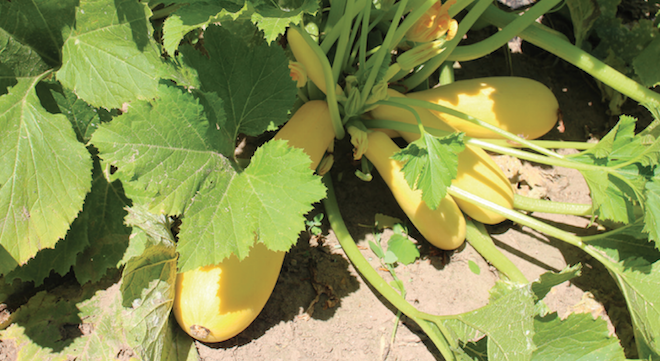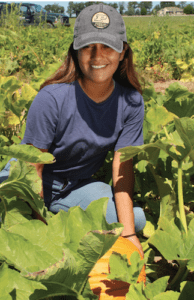

Jul 14, 2021New research seen on Reflex’s crop safety on vegetables
Reflex (fomesafen) has a 24C label in several states for certain vegetables. With Reflex’s ability to control warm season broadleaf weeds like pigweed and lambsquarters, Purdue University is evaluating crop tolerance in pursuit of a 24C label for Indiana, said Stephen Meyers, Purdue University assistant professor of weed science. Meyers spoke on Purdue’s fomesafen research at the Indiana Horticulture Conference and Expo, held virtually in 2021.
Purdue researchers looked at Reflex at 1x, 2x, 3x and 4x rates. This correlated to rates of 16 ounces, 32 ounces, 48 ounces and 64 ounces per acre for pumpkin, summer squash, winter squash and bell pepper, and rates of 12 ounces, 24 ounces, 36 ounces and 48 ounces per acre for watermelon.
Watermelon leaves had minor injury at the 1x rate at two locations two weeks after transplant. The amount of injury gradually faded and was hardly noticeable six weeks after transplant.


research assistant, is part of the school’s efforts to study Reflex’s (fomesafen) ability to control warm season broadleaf weeds like pigweed and lambsquarters.
“Injury was temporary and did not reduce the number of fruit or yield,” said Jeannine Arana, Purdue University graduate research assistant. Arana also spoke at the conference.
Both winter squash and bell peppers had a moderate level of injury at the 1x rate two weeks after transplant, and hardly any visible damage at six weeks. Yields were similar between the 1x and nontreated plots.
In summer squash, the 1x rate sometimes caused enough injury to reduce plant height and yield. “Summer squash had inconsistent results,” Arana said.
Pumpkin’s emergence was reduced by about one fourth at the 1x rate, but the amount of total fruit and marketable fruit were only slightly decreased.
“The 1x rate reduced emergence, but didn’t have an effect on yield,” Meyers said.
The two pumpkin cultivars in the study did respond differently to treatment. When adopting any new practice, including the use of an additional herbicide, Meyers suggested that growers not make whole farm changes in the first year. Growers should test a small portion of their pumpkins in the first year to ensure crop safety in the cultivars they grow.
With the exception of summer squash, “the 1x rates resulted in minimal injury at two weeks after planting,” Arana said, and didn’t affect the yield of watermelon, pumpkin, bell pepper or winter squash. The 2x, 3x, and 4x rates showed progressively more damage until it became very severe.
Purdue’s trials will be repeated in 2021. Growers interested in using Reflex should consult their state pesticide regulatory office, Extension service, or Syngenta representative to ensure it is registered and to secure the applicable label.
— Dean Peterson, VGN correspondent














